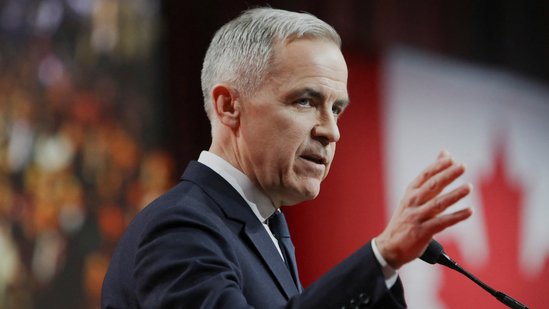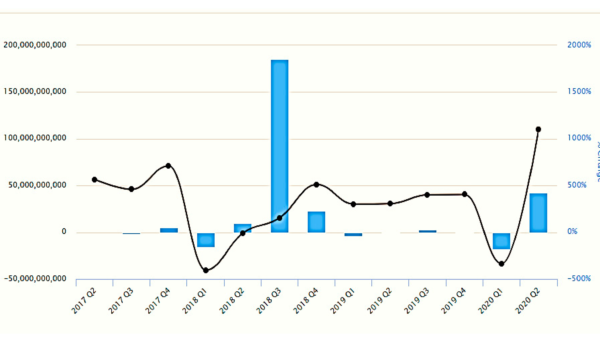Dollar Tree Shares Rise on Family Dollar Sale News
Dollar Tree Inc. saw its stock price rise by 3% in premarket trading following the announcement of its decision to sell its Family Dollar brand for $1 billion. The move is seen as a strategic realignment aimed at improving operational efficiency and focusing on core business strengths. Investors responded positively to the decision, viewing it as a step toward revitalizing Dollar Tree’s overall profitability.
Family Dollar Divestiture Marks Strategic Shift
The sale of Family Dollar comes nearly a decade after Dollar Tree acquired the discount chain in 2015 for $8.5 billion. The decision to divest signals a course correction following years of underperformance and integration challenges. By offloading Family Dollar, Dollar Tree can now streamline operations and concentrate resources on its namesake brand and more profitable ventures.
Stock Market Reacts Positively to Announcement
Investor sentiment improved immediately after the announcement, with Dollar Tree shares gaining 3% before markets opened. Analysts cited clarity of vision and improved capital allocation as key reasons for the bullish response. The market’s reaction indicates growing confidence in Dollar Tree’s management strategy and execution.
Proceeds to Support Core Growth Initiatives
According to the company’s statement, proceeds from the sale will be used to expand the Dollar Tree banner, upgrade supply chain infrastructure, and pay down debt. Management also hinted at potential share repurchases or dividend enhancements, aligning with investor preferences for shareholder value creation.
Longstanding Struggles with Family Dollar
Since acquiring Family Dollar, Dollar Tree has faced ongoing challenges, including stagnant store traffic, operational inefficiencies, and increased competition in the low-cost retail space. Despite efforts to rebrand and revamp Family Dollar locations, the chain failed to deliver on the expected synergies and growth potential.
Private Equity Buyer Sees Turnaround Opportunity
The buyer of Family Dollar is reported to be a private equity firm specializing in retail turnarounds. While details of the firm’s plans remain under wraps, insiders suggest that the buyer sees long-term value in Family Dollar’s footprint and customer base, particularly in underserved rural markets.
Management Emphasizes Focus on Dollar Tree Brand
Dollar Tree’s CEO emphasized that the divestiture allows the company to reinvest in its highest-performing segments and double down on customer experience enhancements, store upgrades, and digital transformation initiatives. The company’s namesake brand has consistently outperformed Family Dollar in terms of same-store sales and customer loyalty.
Retail Industry Analysts Applaud the Move
Industry analysts have largely welcomed the announcement, calling it a strategic refocus that could unlock shareholder value. Some suggest that Dollar Tree’s decision mirrors a broader trend in retail, where companies are streamlining portfolios to drive profitability amid margin pressures and shifting consumer preferences.
Competitive Landscape Continues to Intensify
The low-price retail segment remains highly competitive, with players like Dollar General, Walmart, and Aldi aggressively expanding in similar markets. Dollar Tree’s renewed focus on its core brand is expected to help it better compete on price, store experience, and supply chain agility.
Family Dollar’s Mixed Legacy Leaves Lessons
While Family Dollar offered Dollar Tree a broader geographic reach and higher store count, the integration process highlighted the risks of large-scale retail mergers, especially in value-oriented segments. The experience offers valuable insights into brand alignment, cost structure optimization, and market positioning.
Financial Health to Improve Post-Transaction
The $1 billion cash infusion will significantly improve Dollar Tree’s balance sheet, enabling more aggressive investments in technology, labor retention, and merchandise innovation. With fewer capital drains from underperforming stores, the company can operate with greater financial flexibility moving forward.
Potential for Future Expansion or M&A
Freed from the burden of Family Dollar, Dollar Tree may explore future acquisition opportunities or organic expansion into adjacent retail categories. Some analysts speculate that the company could enter the grocery or home goods segments, leveraging its customer base and real estate presence.
Customer Reactions Expected to Be Neutral
From a consumer standpoint, the transition is expected to be largely seamless, as most Family Dollar locations will continue operating under their existing brand. The sale will likely have minimal short-term impact on shoppers, though operational improvements under new ownership may follow.
Earnings Outlook Gains Positive Momentum
With Family Dollar off the books, Dollar Tree’s earnings outlook has improved, and analysts have begun revising forecasts upward. The company is now positioned to achieve higher margins and more predictable cash flow, which could support stronger performance through the remainder of 2025.
Conclusion: A Pivotal Turn Toward Profitability
Dollar Tree’s decision to sell Family Dollar marks a pivotal moment in its corporate evolution. By shedding a long-troubled asset and refocusing on its core strengths, the company is aiming to rebuild investor trust, restore financial discipline, and position itself for long-term growth in a dynamic retail environment.
































